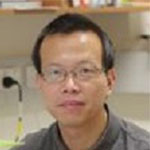Developing efficient mechanisms for energy storage to create a greener future
Monash Warwick Alliance Catalyst Fund – May 2018 Round
Rapid depletion of fossil fuels and the consequent increase in carbon dioxide (CO2) emissions has led to one of the greatest environmental challenges of our time; the greenhouse effect. Finding effective ways of minimizing CO2 emissions has become a major focus not only for researchers, but also for governments trying to meet their obligations from agreements such as the Paris climate talks and for industry managing their legal and social responsibilities.
To achieve this objective, an increasing number of technologies have been developed to convert energy from renewable sources, such as solar and wind, into electricity with much improved efficiency. This trend is expected to grow continuously in the foreseeable future to satisfy the ever-expanding human population and their desire to maintain a high quality of life. On the one hand, the extensive development of renewable energy technologies and widespread utilization of renewable energy could solve the above mentioned energy and environmental crisis in the long term, but on the other hand, has also started causing problems to the existing power distribution infrastructure due to its intermittent nature. In other words, due to a strong mismatch between the time and location of energy production with those of demand, integration of more than 20% renewable energy could endanger the stability of the power grid.
To overcome this drawback, efficient mechanisms for energy storage need to be developed. Among all technologies developed or currently under development, production of solar fuels through electrocatalysis to produce hydrogen from water splitting and/or value added carbonaceous species from CO2 is a particularly attractive route due to its scalability for commercial applications.
A major obstacle in the development of commercially feasible electrocatalytic processes for energy conversion and storage is the immature understanding of the mechanisms and activity associated with the complex catalytic reactions.
This project will bring together the research excellence of world-class academic leaders from Monash Science and Engineering and Warwick Chemistry and Warwick Manufacturing Group needed to achieve high global impact on electrocatalysis. Once cost-effective, highly active, selective and stable catalysts are developed and identified as a result of the joint efforts of the Monash and Warwick team, the feasibility for commercial applications in the development of next generation electrocatalytic processes will be explored via collaboration with research funders and industry in Australia and Europe.
Principal Applicants:
 |
 |
|
Associate Professor, School of Chemistry Monash University |
Professor, Department of Chemistry University of Warwick |
Co-Applicants:
|
Professor, School of Chemistry Monash University |
Professor, Department of Chemistry University of Warwick |
|
Professor, School of Chemistry Monash University |
Professor, Department of Chemistry University of Warwick |
|
Professor Christopher Hutchinson Professor, Materials Science and Engineering Monash University |
Warwick Manufacturing Group University of Warwick |
|
Lecturer, Materials Science and Engineering Monash University |
Marie Curie Research Fellow University of Warwick |
